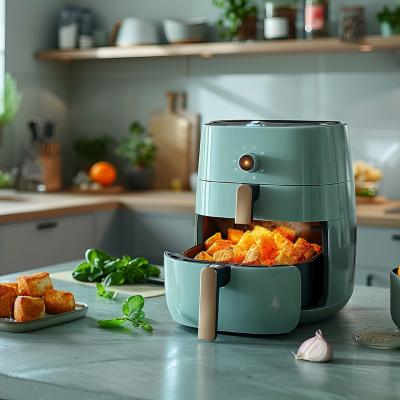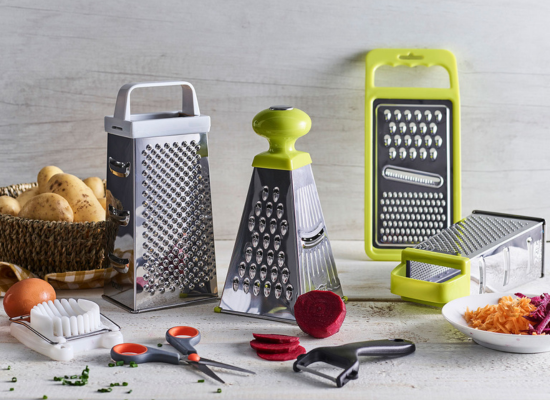
The steel of the knife ensures the quality of the knife and the performance. A steel metallurgist helps to keep the quality of the steel that is used to make the knife.
Today we have Larrin Thomas, a steel metallurgist, who falls in love with steel when visiting different live shows with his father.
Also, he is the founder of a knife steel blog KnifeSteelNerds, where he writes about different knife steel and various method for the treating steel for making the best quality knife.
While talking to Thomas we tried to know about his early life and also the reason for his love for the knife. Also, he told us the factor for selecting the best quality steel to make a knife.
You can know more about Thomas from his business website or catch him on Instagram, @knifesteelnerds.
Hello Larrin, It is a Great Pleasure That You Give Us Some Time From Your Busy Schedule. First of All, Our Audiences Would Love to Know About Your Childhood. And Also, Could You Please Tell a Little Bit More About Your Visits to the Knife Shows?
I grew up around knives because my father, Devin Thomas, is a well known Damascus steel producer. My first visits to knife shows when I was about 16 led to me really learning more and becoming excited about knives.
There were many custom knifemaking talks about their knives cutting the best or being unbreakable and they often had interesting reasons for their claims. Secret steels, special methods for processing steel, etc. to make the knives better than the competition.
What is the Reason You Love Knives? And What Inspired You to Do a Ph.d. In Metallurgy?
What I love most about knives are the engineering aspects of them: what makes one steel different than another, how the steels should be “heat-treated” for different combinations of properties, how the edge should be adjusted for cutting performance, or resistance to chipping, etc.
It was my interest in these topics that led me to pursue a career in Metallurgy so that I could learn the answers to all of the questions I had.
How Did You Start the Journey of Knifesteelnerds.com? Why Do You Feel the Need for a Knife Steel Blog?
I had participated in various knife forums in the past but I was frustrated by the fact that discussions would soon be forgotten, so if I put a lot of time and effort into explaining something it wouldn’t matter because it would be on page 5 a couple of weeks later and no one would read it.
I wanted to have a place for anyone to go who wanted to learn about different types of knives and steel.
What Was Your First Knife? And Could You Share the Story of Your First Knife With Us?
I’m not sure I remember what my first knife was. I have been given several knives from my father, friends, and knife makers.
It is the generosity of these people and the memories I have of them that make my knives special to me.
What Are the Factors One Should Keep in Mind While Selecting Steel for Every Knife?
There are a lot of factors of course so I will try to keep this brief. One thing is the method by which you will make the knife, whether by forging or by “stock removal.”
A beginner who is forging should stick with simple steels like 1084 that are easier to work with while forging before moving to more advanced alloys.
Good stainless steel to start with is AEB-L as it is relatively easy to grind and polish and offers a good combination of properties.
What is Your Favorite Heat-treating Process for a Steel Knife? And Why?
Many beginners want to heat treat knives using only their forge and I am not a fan of doing it that way. The temperature uniformity and consistency from knife to the knife is very difficult to achieve, even for those who are very experienced.
Using a controlled heat treating furnace will make the heat treatment more consistent and much more foolproof. For those who cannot afford a heat-treating furnace, I recommend sending out to a professional heat treating service.
We Found That Your Father Used to Make Damascus Steel. Did You Ever Help Your Dad Make Damascus Steel?
I spent a year working for my father shortly after high school. I spent most of my time cleaning material and preparing it for forging and then surface grinding the material after it was processed.
I also learned to make knives during that year and sold a couple, though I put more of my energy into becoming a metallurgist than pursuing knife making.
What is Your Plan With Knifesteelnerds? What Types to Post Your Audiences Would Expect From Knifesteelnerds in the Future?
The difficulty with Knife Steel Nerds is that it has become very large and it is a bit difficult to get into for someone who visits the site for the first time with no background knowledge.
Most of the articles cover a specific area such as given steel or a set of experiments that I completed. I recently published a book, Knife Engineering: Steel, Heat Treating, and Geometry which provides an introduction to everything steel and knife-related.
I recommend it to knife enthusiasts, knife makers, bladesmiths, and anyone who wants to learn a lot about how knives work.
What Traits and Skills Do You Think Are Necessary to Be Able to Succeed in This Knife Making Industry?
The knife industry continues to grow and more and more people are aware of custom knives thanks to things like the Forged in Fire show.
There is plenty of competition. The knife makers who succeed are not just those who can make an attractive looking knife but those who are good businessmen. Effective marketing, regular and consistent production, and good customer service are required to make it.
What Single Piece of Advice Would You Love to Give to the New Knife Makers?
Learn everything you can and make a lot of knives. Nothing can substitute for the 10,000 hours it takes to become a master.




Share and get 15% off!
Simply share this product on one of the following social networks and you will unlock 15% off!